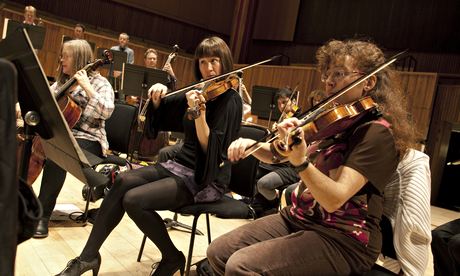
First performed in Paris in 1748, Rameau's Zaïs has not been heard complete in the UK until now. Its revival forms part of the Rameau Project, a collaboration between the Orchestra of the Age of Enlightenment and Oxford University, headed by the conductor-musicologist Jonathan Williams, which aims to re-examine the composer's relatively neglected output and to produce new editions of a number of his scores.
Zaïs, however, proves to be a difficult piece in some respects. An exercise in pastoral, its subject pre-empts both Mozart's Così fan tutte and Die Zauberflöte. Zaïs, king of the sylphs, posing as a shepherd and enamoured of the mortal shepherdess Zélidie, is ordered by the god of love to test her fidelity and so disguises himself as his best friend, Cindor, in an attempt to seduce her.
Masonic imagery underscores the ordeals that follow, but there's no attempt to question the narrative's morality, and unusually for Rameau, often a great psychologist, the characters are ciphers. His interest is primarily in the underlying metaphysics. The extraordinary overture, in which music itself seems to coalesce out of rhythmic dislocation, depicts the emergence of the primary elements from chaos, and the subsequent prologue finds Oromazès, king of the spirits, creating the world. It's one of the great sequences of 18th-century music, but the opera that follows never equals it in inspiration.
It was finely done here, with wonderfully idiomatic conducting from Williams and playing and choral singing of great verve from the OAE and the Choir of the Enlightenment. The classy cast included Jeremy Budd's elegant if occasionally effortful Zaïs, Louise Alder's refined Zélidie and a star turn from Ashley Riches as the worldly-wise Cindor. The dances, crucial to Rameau's sense of total theatre, were exquisitely choreographed in 18th-century style by Edith Lalonger, and ravishingly performed by Les Plaisirs des Nations.

